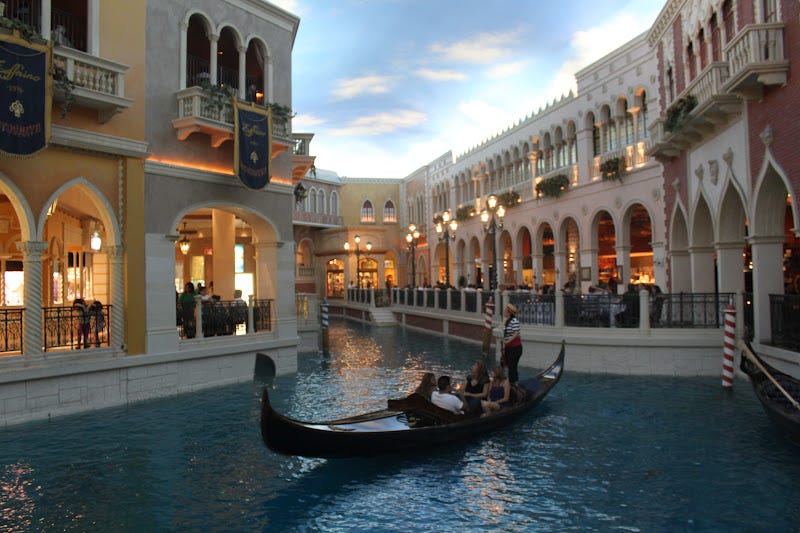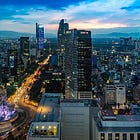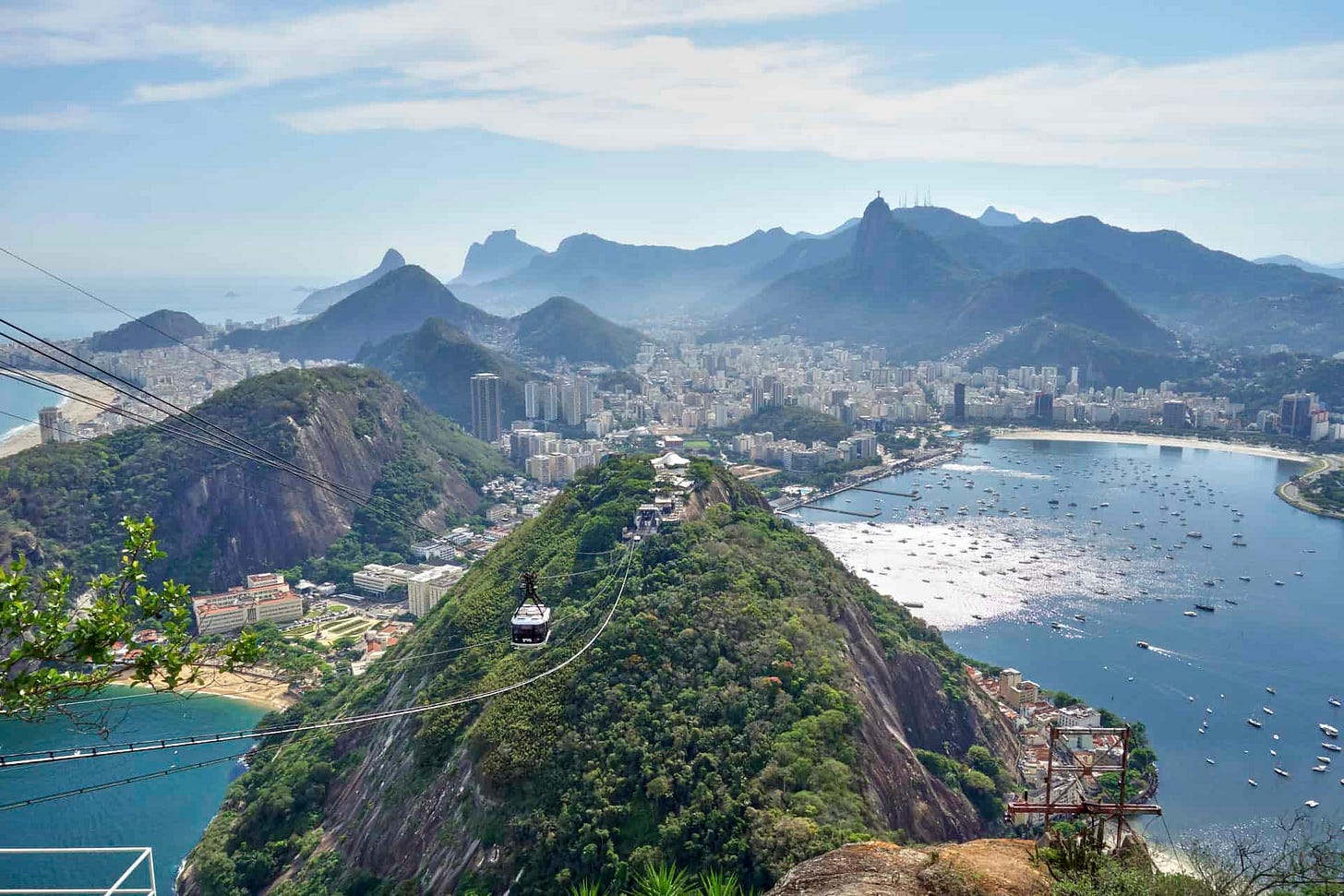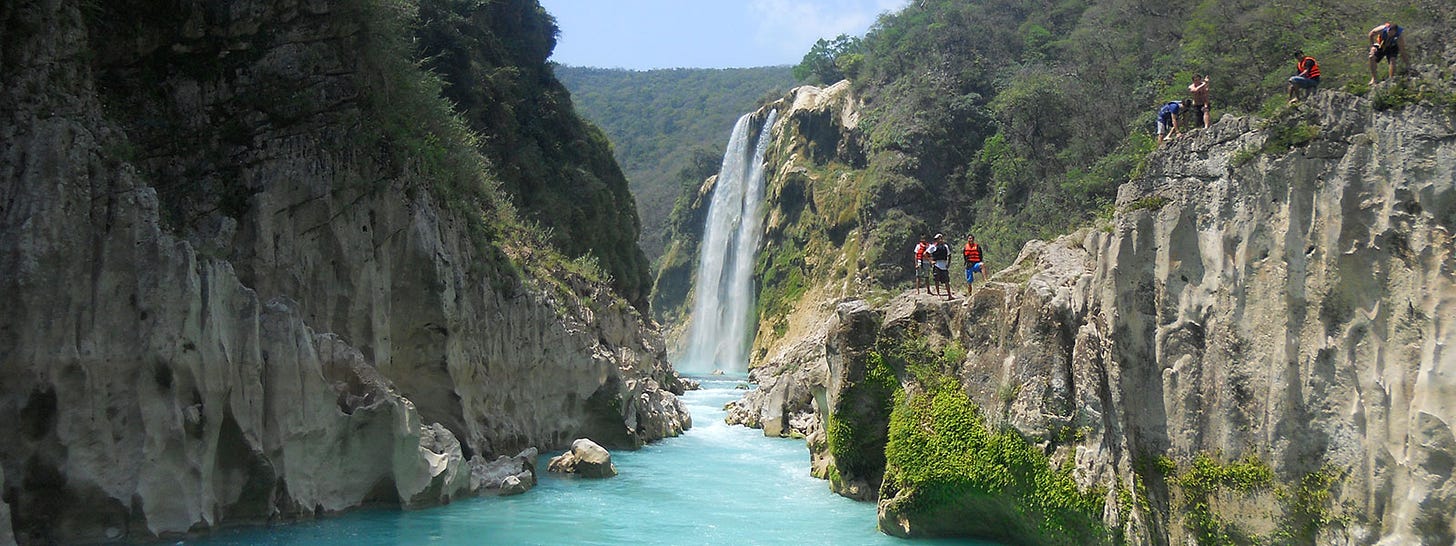Whose Dream Are You Living?
Picture this: you've saved up your hard-earned cash, taken time off work, and finally arrived at your dream destination. You expect to be transported to a new world, full of excitement and wonder, but instead, you're faced with a familiar sight—carbon copies of the restaurants, shops, and hotels you could easily find back home. It's like stepping into a sanitized version of a foreign land, stripped of its uniqueness. You look around, and it hits you: you're not experiencing anything new. You're just living in someone else's idea of what your dream vacation should be.
This is the reality of modern mass-tourism, and if you’re not careful, you’ll fall into the trap of thinking you’ve traveled the world when in fact, you’ve only visited the shell of it. The illusion of exploration is everywhere—from fake Venetian canals in Las Vegas to cookie-cutter resorts designed to keep you comfortable while simultaneously robbing you of any real connection with the destination.
Gone are the days when travel was a pilgrimage of the mind, body, and soul. In the past, people traveled not for the Instagram post but for the life-altering experience. They embarked on treks through the mountains, crossed deserts, and ventured into the unknown with the sole purpose of gaining a new perspective on life. The journey itself was as transformative as the destination. It tested their endurance, sparked self-discovery, and offered them a glimpse into cultures far removed from their own.
The Lost Adventure
Fast forward to today, and that sense of adventure is nearly gone. Technology has made it so that no place on Earth is truly unknown. We can research every detail of our trip before we even leave our homes, from the best restaurants to the top-rated tourist spots. We've become so connected that we often communicate more with people back home than with the locals in the places we visit.
Take South America, for example. Once a frontier of unexplored landscapes and vibrant cultures, it’s now overrun by backpackers with their Lonely Planet guides in hand, following well-trodden paths. Asia’s sprawling megacities have become concrete jungles, and Europe, once the cradle of history and art, is slowly transforming into a cheap imitation of America with its endless fast-food chains and international brands.
Traveling should be about breaking away from the monotony of home, not about replicating it in a different climate. It’s about forming your own opinions, crafting your own adventure, and discovering the hidden layers of a place that most tourists overlook. But to do this, you must be willing to embrace discomfort and uncertainty—two things the modern tourist avoids at all costs.
The Comfort Trap: Are You Just a Tourist?
Mass-tourism is a carefully orchestrated machine, designed to keep you comfortable while spoon-feeding you a watered-down version of real exploration. You follow the yellow brick road laid out by guidebooks and travel agencies, stopping at predetermined destinations to snap selfies and buy overpriced souvenirs. It's like living in someone else's dream—a dream where risk is minimized, and spontaneity is nonexistent.
Imagine taking a journey where every step is mapped out for you, every corner sanitized for your convenience. It's safe, it's predictable, and it's boring. Real travel, on the other hand, requires curiosity, creativity, and a bit of boldness. It's about veering off that yellow brick road to explore the poppy fields or the dark forest. It’s about getting lost, taking risks, and experiencing the thrill of the unknown.
When was the last time you allowed yourself to truly explore? To walk down an alley that wasn’t in your guidebook, to eat at a restaurant that had no English menu, or to strike up a conversation with a local who had no interest in selling you anything? These are the moments where the magic of travel happens—when you stop being a tourist and start being a traveler.
Why Are You Traveling?
Many people travel for the wrong reasons. Some think a trip abroad will be a quick fix for their problems back home. Others go just to impress their friends or social media followers. They post curated photos, carefully chosen to give the illusion of a life well-traveled, when in reality, they’ve barely scratched the surface of the places they visit.
This kind of travel is shallow. It's not about discovering new cultures, expanding your horizons, or gaining a deeper understanding of the world. It’s about validation. It's about seeking external approval rather than internal growth. But true travel—the kind that leaves you changed—is deeply personal. It’s not about showing off your adventures to the world; it’s about experiencing something that you’ll cherish for yourself, something that becomes a part of who you are.
If you're traveling to escape your problems or to put on a show, you're missing the point. Travel should be a journey of self-discovery, not a performance. The moments that truly matter are the ones that can't be captured in a photograph. They are the quiet realizations, the unexpected friendships, and the challenges that push you out of your comfort zone and force you to grow.
Travel with Purpose: Discover the Unknown
As a travel enthusiast, I find myself aligned with the philosophy of Julius Evola, who saw travel as a means of personal and spiritual growth. In today’s world, too many people treat travel like a checklist—a way to tick off countries and landmarks, without ever truly experiencing the essence of a place. They go through the motions, following the crowd, while missing the deeper, transformative aspects of travel.
Real travel requires you to step off the beaten path. It means taking risks and venturing into uncharted territories. It’s about finding the hidden gems, the local haunts, and the cultural nuances that most tourists overlook. This is where the beauty of travel lies—not in the carefully curated experiences offered by mass-tourism, but in the raw, unfiltered reality of a place.
Evola believed that personal growth came from confronting the unknown, from embracing the unfamiliar with open arms. In a world obsessed with social media and personal branding, it’s easy to lose sight of this. Too many people are more concerned with capturing the perfect Instagram shot than with immersing themselves in the culture of their destination. They pose, they post, and they move on, never fully engaging with the world around them.
Forge Your Own Path
If you want to travel, do it for yourself, not for others. Put down the guidebook, turn off your phone, and allow yourself to get lost in the experience. Stop following the crowds and start creating your own adventure. Travel is about discovering the unknown, embracing the challenges, and returning home with a newfound perspective on life.
So, the next time you find yourself planning a trip, ask yourself: Whose dream are you living? If the answer is anyone other than your own, it’s time to change your approach. Step away from the tourist traps, ditch the superficial, and immerse yourself in the soul of the place you’re visiting. Only then will you truly understand the transformative power of travel.









